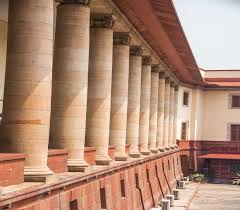The present appeal arises out of a dispute pertaining to custody of the child born out of the wedlock of the parties to the appeal. (Para 3)
The appellant filed application[Crl.M.P. No. 4929 of 2014] seeking revocation of the earlier order dated 22.05.2014 passed by the Magistrate directing handing over custody of the child to the respondent. The aforesaid application was dismissed by the Magistrate vide order dated 20.11.2014. The said order was challenged by the appellant by filing appeal before the Principal District Judge, Pudukottai. The same was dismissed vide order dated 31.01.2017. The High Court in revision filed by the appellant upheld the aforesaid order. The same is under challenge before this Court in the present appeal. (Para 3)
Despite there being no stay, the order directing the appellant to hand over custody of the child to the respondent had not been complied with. The proceedings of custody were initiated in May 2014 and vide order dated 22.05.2014, the appellant was directed to hand over custody of the child to the respondent when he was three years and three months old. However, till date custody of the child continues with the appellant. (Para 4)
A perusal of the report submitted by Ms. V. Mohana, learned senior counsel shows that during interaction with the parties to the dispute, she had made numerous efforts to break the ice. As per the report, initially the child was averse even to see his mother. After Ms. V. Mohana apprised him importance of the mother, he reluctantly agreed to sit with the mother but with minimal interaction. He is stated to be an intelligent child. Though initially he said that he can meet the mother twice a year, however later on he consented for a monthly meeting at a public place to be scheduled on a Sunday. He was averse to visit the Court. He agreed that his mother-respondent can make phone calls to him. (Para 8.1)
As suggested by Ms. Mohana, learned senior counsel an effort can be made by the Mediation Centre attached with the High Court for an interaction of the child with a Counsellor. However, as the child is averse to visit the court, it may be planned at a place other than the Court Complex. The child at present is 12 years and 9 months old. He is in a position to take decisions. Considering the interaction we had with the child when he appeared in court and the report submitted by Ms. V. Mohana, Senior Advocate, in our opinion, it would not be in the interest for upbringing of the child that his custody is given to the respondent-mother at this stage. However, as agreed, the mother can call him and will have visitation rights, as noticed above. (Para 11)
SUPREME COURT OF INDIA
2023 STPL(Web) 467 SC
[2023 INSC 1054]
Selvaraj Vs. Revathi
Criminal Appeal No(s). 3736 of 2023 (Arising out of S.L.P.(Crl.) No.9914 of 2018)-Decided on 6-12-2023
https://stpllaw.in/wp-content/uploads/2024/01/2023-STPLWeb-467-SC.pdf







